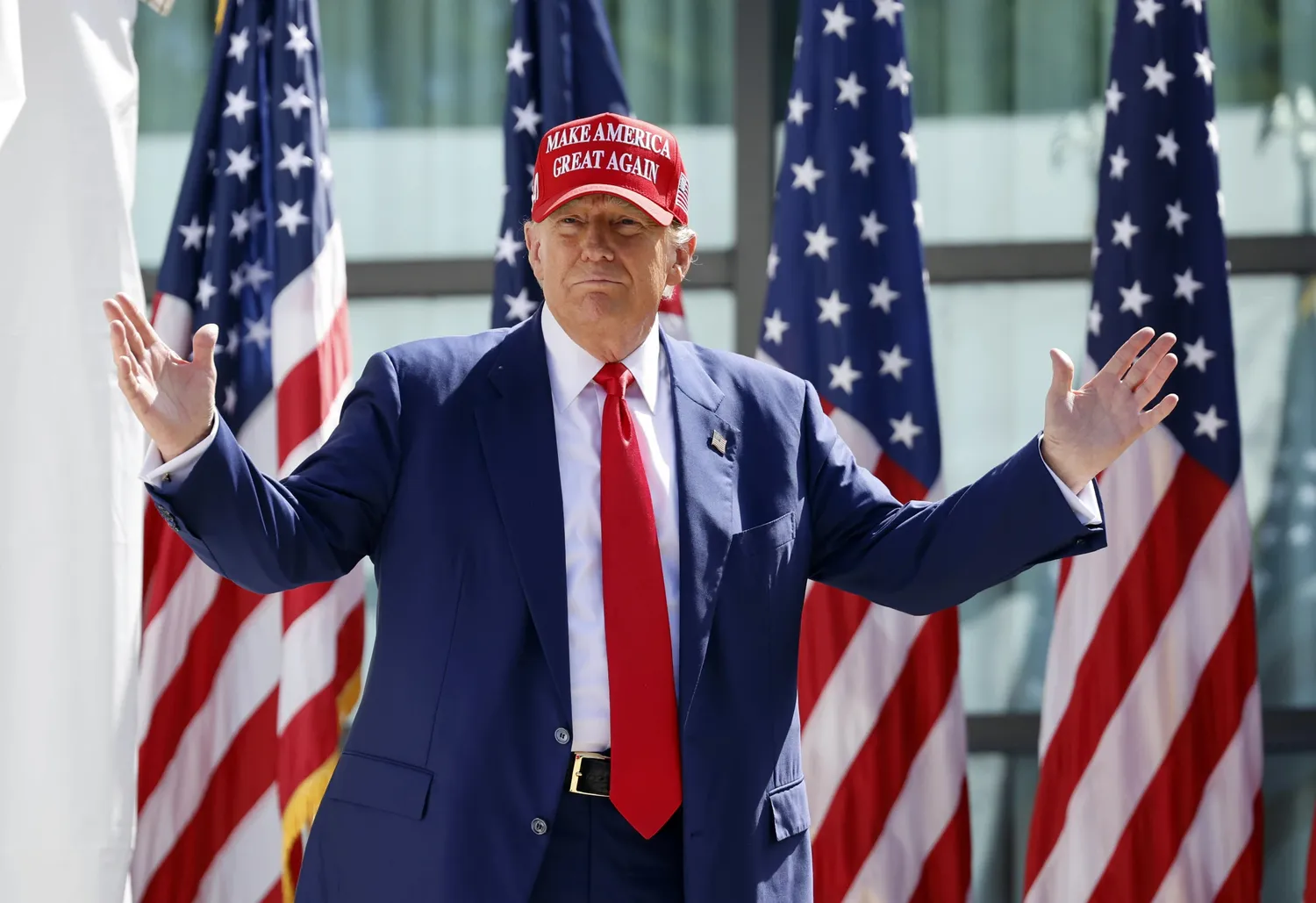Immunity Ruling
Judge Delays Trump’s Hush Money Sentencing Until at Least September
Prosecutors maintain confidence in the validity of their case against Trump but have not objected to his plea.
In a significant legal development, the sentencing of former President Donald Trump in his hush money case has been postponed until at least September 18. This delay follows a recent Supreme Court ruling that extended broad immunity protections to presidents, prompting Trump's legal team to request additional time to assess the ruling's implications on his New York case.
The decision to delay the sentencing was made by Judge Juan Merchan, who is overseeing the criminal trial in Manhattan. Trump's attorneys are seeking to have his felony conviction on 34 counts of falsifying business records dismissed. These charges are linked to payments made to Stormy Daniels, an adult film actress, to silence her allegations of an affair with Trump before the 2016 presidential election.
The Supreme Court's ruling, which grants immunity to presidents for official acts, has introduced a new layer of complexity to Trump's legal battles. Trump's legal team argues that certain evidence presented by the prosecutors should have been excluded as it pertained to official presidential actions. This argument has led to a request for more time to evaluate the ruling's potential impact on the New York trial.
In a letter filed with the court, Manhattan District Attorney Alvin Bragg's office expressed their willingness to accommodate Trump's plea for a postponement. They agreed to a short delay of the July 11 sentencing to allow for a rebuttal to Trump's legal maneuvers. This delay means that Trump will not face sentencing until after the Republican National Convention, where he is expected to be formally nominated as the party's presidential candidate.
Prosecutors maintain confidence in the validity of their case against Trump but have not objected to his plea for an extension. They believe that Trump's defense arguments are without merit but are open to deferring the sentencing while the judge deliberates on the matter.
Trump's conviction on falsifying business records carries a maximum penalty of four years in prison. Other potential sanctions include probation, fines, or conditional discharge. The payment to Stormy Daniels was portrayed by prosecutors as part of a broader effort to prevent individuals from disclosing potentially damaging information about Trump's extramarital affairs during the campaign. Michael Cohen, Trump's former attorney, facilitated the payment to Daniels and was subsequently reimbursed by Trump, with the expenses recorded as legal fees by Trump's organization.
The Supreme Court's decision has added a new dimension to the case, with Trump's legal team arguing that the ruling could potentially overturn his conviction. The ruling restricts prosecutors from citing any official acts as evidence in trying to prove a president's unofficial actions violated the law. In their filing, defense lawyers argued that Manhattan prosecutors had placed "highly prejudicial emphasis on official-acts evidence," including Trump's social media posts and witness testimony about Oval Office meetings.
Judge Merchan has announced that he will deliver a decision concerning the immunity ruling on September 6. This decision will be crucial in determining the next steps in Trump's legal journey. If the judge rules in favor of Trump's arguments, it could lead to the dismissal of his conviction. If not, Trump will face sentencing on September 18.
Trump, the first former president to face a criminal conviction, will be mandated to appear in court for his sentencing. The delay in sentencing allows Trump's legal team more time to prepare their case and assess the implications of the Supreme Court ruling.
As this situation continues to evolve, further updates will be provided. The postponement of Trump's sentencing adds another layer of uncertainty to an already complex legal and political landscape. The outcome of this case could have significant implications for Trump's future, both legally and politically, as he seeks the Republican nomination for the 2024 presidential election.

